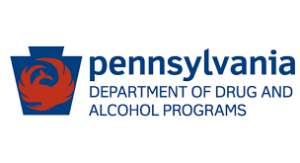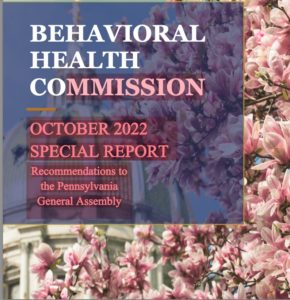PA Health Policy Update for January 13
The following is an update of selected state health policy developments in Pennsylvania from January 7-13. (Some of the language used below is taken directly from state documents.)
Shapiro-Davis Transition
Governor-Elect Josh Shapiro announced the nomination of several cabinet-level officials this week, including Dr. Valerie Arkoosh as Secretary of the Department of Human Services, Dr. Debra Bogen as Secretary of the Department of Health, Dr. Latika Davis-Jones as Secretary of the Department of Drug and Alcohol Programs, Mr. Jason Kavulich as Secretary of the Department of Aging, and Mr. Michael Humphreys as Insurance Commissioner. All of these nominees are subject to confirmation by the state Senate. Find additional information about the health-related agency nominees’ respective backgrounds here and a complete list of the Shapiro-Davis administration appointments made to date here.
Governor-Elect Josh Shapiro and Lieutenant Governor-Elect Austin Davis will be sworn into office next Tuesday, January 17 at 12:00 p.m.
 General Assembly
General Assembly
The state House and Senate both convened this week for a special session to consider a constitutional amendment extending the statute of limitations for victims of sexual abuse to file civil claims. The Senate passed Senate Bill 1 by a vote of 28-20; the bill includes three proposed constitutional amendments. In addition to extending the statute of limitations, Senate Bill 1 also requires voters to present a valid form of ID before voting in an election and prevents the governor from vetoing the General Assembly’s disapproval of a regulation. After convening on Monday, the House recessed without agreement. Speaker Rozzi subsequently appointed a committee of six House members (three Republicans and three Democrats) to negotiate a path forward.
The state Senate is scheduled to return to session Tuesday, January 17 at 10:00 a.m.
Department of Human Services
- The Department of Human Services (DHS) has updated its web page addressing the unwinding of continuous Medicaid and CHIP eligibility established by the Families First Coronavirus Response Act to reflect federal legislation that will launch a path toward bringing that continuous eligibility to an end: specifically, the federal Consolidated Appropriations Act of 2023 set April 1, 2023 as the end of continuous coverage for Medical Assistance and CHIP. After April 1, DHS will return to normal eligibility processes. This means that all Medical Assistance and CHIP recipients must complete an annual renewal to see if they are still eligible for coverage. Learn more from DHS’s web page addressing the unwinding of continuous Medicaid and CHIP eligibility.
- DHS will hold a COMPASS Community Partner technical assistance call on Tuesday, January 24 at 1:00 that may address this subject, among other matters. Go here to register (the registration deadline is January 17) and to submit questions to be addressed during the meeting.
- DHS has published a co-location regulatory change that has been under development since 2021. The purpose of change is to eliminate a prohibition against providers leasing or renting space, shelves, or equipment within a provider’s office to another provider or from allowing the paid or unpaid staff of a provider to be placed in another provider’s office. As the published announcement explains, “Developments in the health care industry have emphasized the need for integrated health care. The Department recognizes the benefits of integrated care and deletes this subsection to support the enrollment in the Medical Assistance (MA) Program of providers that share space (co-locating providers). By expanding provider qualifications to include co-locating providers, the Department seeks to support more coordinated and integrated care within the MA Program.” Learn more from this Pennsylvania Bulletin notice.
- DHS has released quarterly licensing and enforcement activity data for its five licensing offices that oversee providers of long-term care, child care, behavioral health care, day activity programs, and residential care for individuals with intellectual disabilities and autism. Learn more about the outcome of these licensing and enforcement efforts from this DHS news release.
Centers for Medicare & Medicaid Services
CMS has shared a presentation with states addressing how they can work with Medicaid managed care plans to review the eligibility of current Medicaid beneficiaries once the continuous eligibility requirement for current Medicaid participants ends on April 1. Learn more from the CMS presentation “Strategic Approaches to Engaging Managed Care Plans to Maximize Continuity of Coverage as States Resume Normal Eligibility and Enrollment Operations.”
Department of Health
The Department of Health (DOH) has issued a health advisory informing providers that as of January 1 it has introduced a new surveillance case definition for multisystem inflammatory syndrome in children (MIS-C) for reporting cases of MIS-C. Providers are required to report cases that meet the new criteria to their local health department. Learn more from this health advisory.
DOH and Berks County will be the nation’s first to test a new federal COVID-19 Home Test to Treat Pilot Program run by the National Institute of Health (NIH) and HHS’s Administration for Strategic Preparedness and Response (ASPR). Learn more about the program from this DOH news release.
COVID-19: By the Numbers
- The number of new COVID-19 cases reported daily in Pennsylvania declined slightly over the past week but the number of new daily deaths rose nearly 50 percent over the high end of the death rate in recent months.
- According to the Department of Health, the number of Pennsylvanians hospitalized with COVID-19 declined nearly 11 percent over the past week; the number on a ventilator because of the virus fell 20 percent; and the number in hospital ICUs held steady.
- The CDC reports a five percent decrease in the seven-day average of new hospital admissions in Pennsylvania because of COVID-19 over the past week.
- As of January 11, four Pennsylvania counties – Forest, McKean, Potter, and Sullivan – are experiencing a low rate of community transmission of COVID-19; nine counties are experiencing a substantial rate of community transmission; and the remaining 54 counties are experiencing high rates of community transmission.
 Department of Drug and Alcohol Programs
Department of Drug and Alcohol Programs
- The Department of Drug and Alcohol Programs (DDAP) has removed a number of inactive bulletins that were formerly listed in its Publications Library because the information contained in them has been superseded by changes in regulation, legislation, subsequent editions of DDAP’s manuals, or the end of an executive order. Policy and information bulletins currently listed on DDAP’s Publications page are still considered active. The information contained in several of the removed bulletins is still relevant under other current active policy bulletins or has been clarified in active licensing alerts. The policy bulletins that have been removed are:
- 15-01: DDAP 2015-2020 Prevention Manual Modifications
- 17-01: Historical TEDS Data Entry into PA WITS
- 17-02: DDAP Prevention Manual Modifications
- 18-01: Face to Face Waiver
- 18-02: Annual Licensure Requirement Waiver
- 18-03: DDAP Fiscal Manual Modifications
- 18-03: NTP Medication Units
- 18-05: Short-term MAT
- 19-01: DDAP Prevention Manual Modifications
- 19-02: Continuation of Services During an Authorization Appeal
- 19-03: Role of Certified Recovery Specialist Working with Overdose Survivors
Information bulletins that have been removed are:
- DDAP has announced the availability of more than $4 million in grant funding for the establishment of regional recovery hubs to enhance recovery supports and promote recovery within communities across Pennsylvania. Grants of up to $500,000 each will be awarded to department-licensed treatment providers that are non-profit organizations for a 15-month period beginning July 1, 2023 through September 29, 2024. Learn more about the purpose of the grants and how to apply for them from this department news release; this grant funding notice; and this department guide to submitting grant requests. The deadline for submitting applications is February 24.
- DDAP has announced a grant funding program “Services to BIPOC Communities” for organizations to establish or expand substance use disorder services, community outreach, and education to Black, Indigenous, and People of Color (BIPOC) communities. The program will award $4 billion in grants, with individual grants ranging up to $400,000 each for one year. Learn more about the grant program, eligibility criteria, and more from this DDAP notice and more about DDAP competitive grant processes here. The deadline for applications is March 10.
Stakeholder Events
Department of Health – Human Immunodeficiency Virus Community Prevention Planning Committee – January 18
The Department of Health’s Human Immunodeficiency Virus (HIV) Community Prevention Planning Committee will hold a public meeting on Wednesday, January 18 at 9:00. Interested parties may attend in person or virtually. Learn more about the committee, where the meeting will be held, and how to participate virtually from this Pennsylvania Bulletin notice.
Department of Health – Renal Disease Advisory Committee – January 20
The Department of Health’s Renal Disease Advisory Committee will meet in Harrisburg on Friday, January 20 at 10:00. To learn more about the committee, the location of the meeting, and how to join the meeting virtually, see this Pennsylvania Bulletin notice.
Department of Human Services – COMPASS Community Partner Technical Assistance Call – January 24
DHS will hold a COMPASS Community Partner technical assistance call on Tuesday, January 24 at 1:00. Go here to register (the registration deadline is January 17) and to submit questions to be addressed during the meeting.
Medical Assistance Advisory Committee – Consumer Subcommittee – January 25
The consumer subcommittee of DHS’s Medical Assistance Advisory Committee will meet virtually on Wednesday, January 25 at 1:00. Go here to register to participate virtually.
Medical Assistance Advisory Committee – January 26
The Medical Assistance Advisory Committee will meet virtually on Thursday, January 26 at 10:00. Go here to register to participate.
Department of Health – Special Pharmaceutical Benefits Program Advisory Council – January 26
The Department of Health’s Special Pharmaceutical Benefits Program Advisory Council will meet in Harrisburg on Thursday, January 26 at 10:00. To learn more about the committee, the location of the meeting, and how to join the meeting virtually, see this Pennsylvania Bulletin notice.
Patient Safety Authority – January 26
The Patient Safety Authority will meet virtually on Thursday, January 26 at 1:00. For information about how to participate in this meeting, see this Pennsylvania Bulletin notice. Registration is required.
Department of Health – Pennsylvania Achieving Better Care by Monitoring All Prescriptions Board – January 31
The Department of Health’s Pennsylvania Achieving Better Care by Monitoring All Prescriptions Board will meet virtually on Tuesday, January 31 at 9:30. For more information about the board and how to join the meeting, see this Pennsylvania Bulletin notice.
Medical Assistance Advisory Committee – Managed Long-Term Services and Supports Subcommittee – February 1
The managed long-term services and supports subcommittee of DHS’s Medical Assistance Advisory Committee will hold a public meeting on Wednesday, February 1 at 10:00. Interested parties may attend in person or virtually. Go here for further information about the meeting, its location, and how to participate virtually.

 Shapiro-Davis Transition
Shapiro-Davis Transition Department of Drug and Alcohol Programs
Department of Drug and Alcohol Programs Pennsylvania Health Care Cost Containment Council
Pennsylvania Health Care Cost Containment Council Governor Wolf
Governor Wolf Department of Health
Department of Health Stakeholder Events
Stakeholder Events General Assembly
General Assembly General Assembly
General Assembly Behavioral Health Commission for Adult Behavioral Health
Behavioral Health Commission for Adult Behavioral Health Department of Health
Department of Health